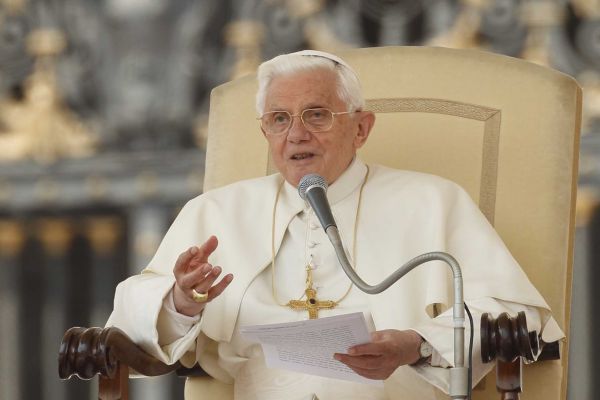Since the previous Catholic leader’s death in December, the Pope Benedict XVI dispute has been a hot topic.
Pope Benedict XVI, a well-known religious leader, presided over the Vatican City State and the Catholic Church.
Following the death of Pope John Paul II, he was elected Pope in the 2005 papal conclave and served as Pope from April 2005 until his resignation in February 2013.
Similarly, after his resignation, Benedict was designated as “Pope emeritus,” a designation he kept until his death in December 2022, at the age of 95.
Controversy Over Pope Benedict XVI: The Church Is Engulfed In Scandals
Page Contents
According to PBS, Pope Benedict’s presidency was defined by a very orthodox defense of church doctrine and difficulty in dealing with the clerical sex abuse scandal.
Following the 2012 Vatican leaks, also known as Vati-Leaks, which revealed corruption, power conflicts, sex, and blackmailing scandals in the Vatican, the Church and the Pope found themselves in hot water.
Although a loss of stamina and his “advanced age” at 85 were noted in the official resignation statement, several doubters find it difficult to accept.
The Pope stated that he was departing voluntarily and “for the good of the church.” Some, though, believe there was more to it.
Benedict’s efforts to re-energize the Roman Catholic Church have recently been overshadowed by the unsolved sexual abuse problem in the clergy.
During his eight-year tenure, Benedict apologized for the abuse and visited with victims on occasion. He couldn’t get away from the fact that the Church had been protecting priests accused of pedophilia.
Severe charges that priests, nuns, popes, and other church members had preyed on minors and that bishops had covered up for them were thought to be the triggers for Benedict’s retirement.
Why Did Pope Benedict XVI Resign Before His Death, According to the Official Account?
On February 28, 2013, Benedict XVI resigned as Pope, citing his elderly age. He was the first head of state to resign since Gregory XII in 1415.
Benedict stated in a statement that the cause was his failing physical and mental strength, as well as the demands of the papacy.
On February 11, he announced that the modern world was changing so deeply and fast that someone of his generation and age was “no longer suited” to the papacy.
He communicated his departure briefly to his cardinals in Latin. He also promised to continue serving the Vatican “through a life dedicated to prayer.”
Benedict was the fourth-oldest individual to hold the office of Pope, at nearly 86 years old on the date of his departure.
The move was unexpected because all modern popes have served until death. Benedict was the first pope to resign without being forced to do so since Celestine V in 1294.
The Vatican clarified that the resignation was not owing to illness, but rather to “avoid that exhausting rush of Easter engagements.”
Benedict departed office on March 13, 2013, after two weeks of formal farewells, and Cardinal Jorge Mario Bergoglio (Pope Francis) succeeded him.
Benedict responded to La Stampa on the first anniversary of his resignation, refuting rumors that he had been forced to resign.
“There is not the slightest doubt regarding the validity of my resignation from the ministry,” he said, dismissing discussion about its invalidity as ludicrous.





